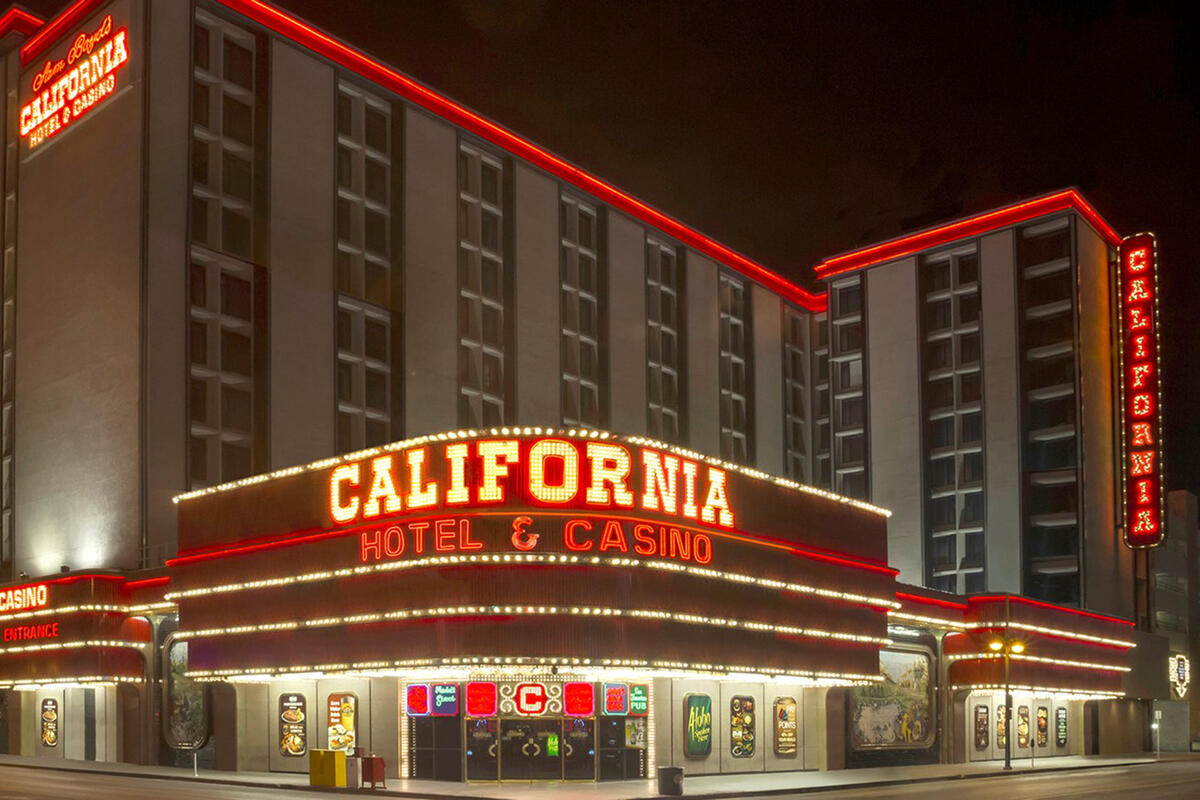Did you know that as many as 40 high school class reunions for Hawaiian high schools are held in Las Vegas per year? Or that in Hawai’i you can purchase specialty greeting cards just for commemorating upcoming trips to Las Vegas?
About 1 in 10 citizens of Hawai’i visit Las Vegas each year, with many visiting two or three times per year. And when they come to the city that has become affectionately known as “the ninth island,” they overwhelmingly choose to stay and play at The California Hotel, a Boyd Gaming Corp. property near Fremont Street.
Originally opened in 1975 to target the Southern California market, “The Cal,” boasts exterior murals celebrating the 1849 gold rush, the building of the Transcontinental Railroad, and the natural beauty of the Sierra Mountains’ foothills. The interior, however, reflects its 40-year history of transformation into a Hawaiian home away from home, with island-themed décor, banquet rooms labeled in the Hawaiian language, and multiple eateries offering Hawaiian favorites.

Our quest to understand how the Hawaiian affection for Las Vegas got started and has since been maintained, led us to a detailed examination of this hotel property at the heart of the Hawaiian-Las Vegas experience. What do Vegas and The Cal offer that makes the cost and inconvenience of traveling nearly 3,000 miles to the desert worthwhile for the inhabitants of an island paradise? Why do they choose Las Vegas as a repeat destination over any other place in the world, returning year after year to spend their vacation money and time here?
In the literature of the anthropology of tourism, the idea of a place in the imaginations and desires of tourists is called its “imaginary.” For example, the “Hawaiian imaginary” that draws tourists to Hawai’i, is that of a tropical paradise with friendly hosts, gorgeous weather, beautiful beaches, and exotic opportunities for relaxing or adventuring as you desire. We now seek to understand the “Las Vegas imaginary” in the hearts and minds of Hawaiians that draws them here.
To that end, we came to the Lied Library Special Collections and Archives to examine the Boyd Gaming Corp. papers, internal newsletters, employee interviews, and promotional materials pertaining to The Cal. These sources give us insight into the way the company has tried, and succeeded, to brand their hotel as the core of the Hawaiian experience of Las Vegas. Come find out some of discoveries.
About the Presenters
Cynthia Van Gilder earned her master's and Ph.D. from the University of California, Berkeley, where she researched the sociopolitics of Polynesian archaeology, ethnic identity, and narratives of cultural heritage. Since joining the anthropology faculty at St. Mary’s College of California, Van Gilder has published on gender and household archaeology in Hawai’i, the use of practice theory in archaeology, and the anthropology of tourism. This “Hawaiian Vegas” research builds on her long-standing interests in how narratives of cultural identity are constructed, experienced, and maintained, particularly in ethnically diverse Hawai’i.
Dana R. Herrera earned her master's and Ph.D. from the University of California, Davis, where she conducted ethnographic research on the intersections of race, gender, and religion with political affiliation in the Philippines. Since joining the anthropology faculty at St. Mary’s College of California, her research has included identity construction in online gaming communities, the Filipino diaspora in Central Europe, and the anthropology of tourism. This “Hawaiian Vegas” project builds on her long-standing interests in the economics of tourism and globalized patterns of ethnic migration/movement, particularly among diverse Asian communities.
Gilder and Herrera and 2018 Eadington Fellows at the UNLV Center for Gaming Research. The residency program enables researchers from around the world to dig into the unique archives in UNLV Libraries Special Collections.



